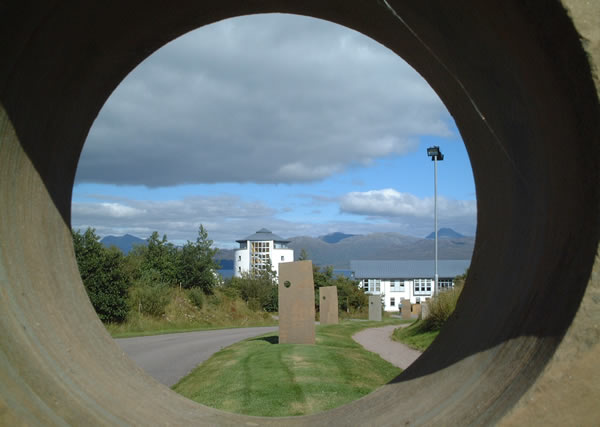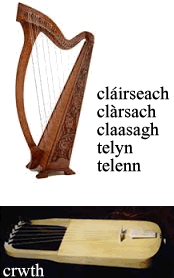Thàinig mi air ais dhan a’ Chuimrigh oidhche Shathairne an déidh seachdain math dha rìreabh ann an Sabhal Mòr Ostaig. Rinn mi cùrsa Òrain Ghàidhlig ri Christine Primrose, agus bu mhór a chòrd e rium. Bha tri duine deug anns a’ chlas à Alba, ‘nam Ghearmailt, às na Stàitean Aonaichte, agus à Sasann. Chan robh Gàidhlig ag na mór-chuid aca, agus bha i doirbh dhaibh na faclan a fhuaimneachadh mar bu chòir. Dh’ionnsaich sinn naoi òrain ar fhichead ré cóig latha, no timcheall sia gach latha. Anns an oidhche bha sinn a’ seinn, a’ dannsa, a’ bruidhinn agus bha sinn gu sona sunndach.
I got back to Wales on Saturday night after a great week at Sabhal Mòr Ostaig. I did the Gaelic Song course with Christine Primrose and really enjoyed it. There were thirteen of us in the class from Scotland, Germany, the USA and England. Most of the others did not speak Gaelic, and it was difficult for them to pronounce the words correctly. We learnt 29 songs in five days, or about six a day. In the evening we sang, made music, danced, chatted and had a wonderful time.
Here are recordings from the cèilidh on Thursday night when we sang a some of the songs we learnt:
E ho leagain (Hi ho my pet one) – a milking song which praises a long-haired heifer who gives plenty of milk and never kicks.
Horo mo bhobagan dram (My friend is the dram) – a song in praise of whisky,
Tha Sneachd air Druim Uachdair (There is Snow on Druim Uachdair) – a song from the 17th century by Fearchair Mac Iain Oig from Kintail about a man who is on the run from the law and is hiding out in the hills where it’s cold and lonely. I sang solo for parts of this.
Carson a’ bhios sinn muladach (Why should we be down-hearted) – a song about young men going off to war together, and how they’re worried, but hope things will turn out well and that they’ll return.
Siud mar chaidh an càl a dholaidh & Cuir a nall Mor-a-Bhitheag (That is how the kale was ruined & Send on over Marion-a-Bhitheag) – two puirt à beul or pieces of mouth music, the first of which tells how the kale was ruined by the lowland men and the emperor of France, and the second concerns Marion-a-Bhitheag – the meaning of Bhitheag in this context is uncertain.

